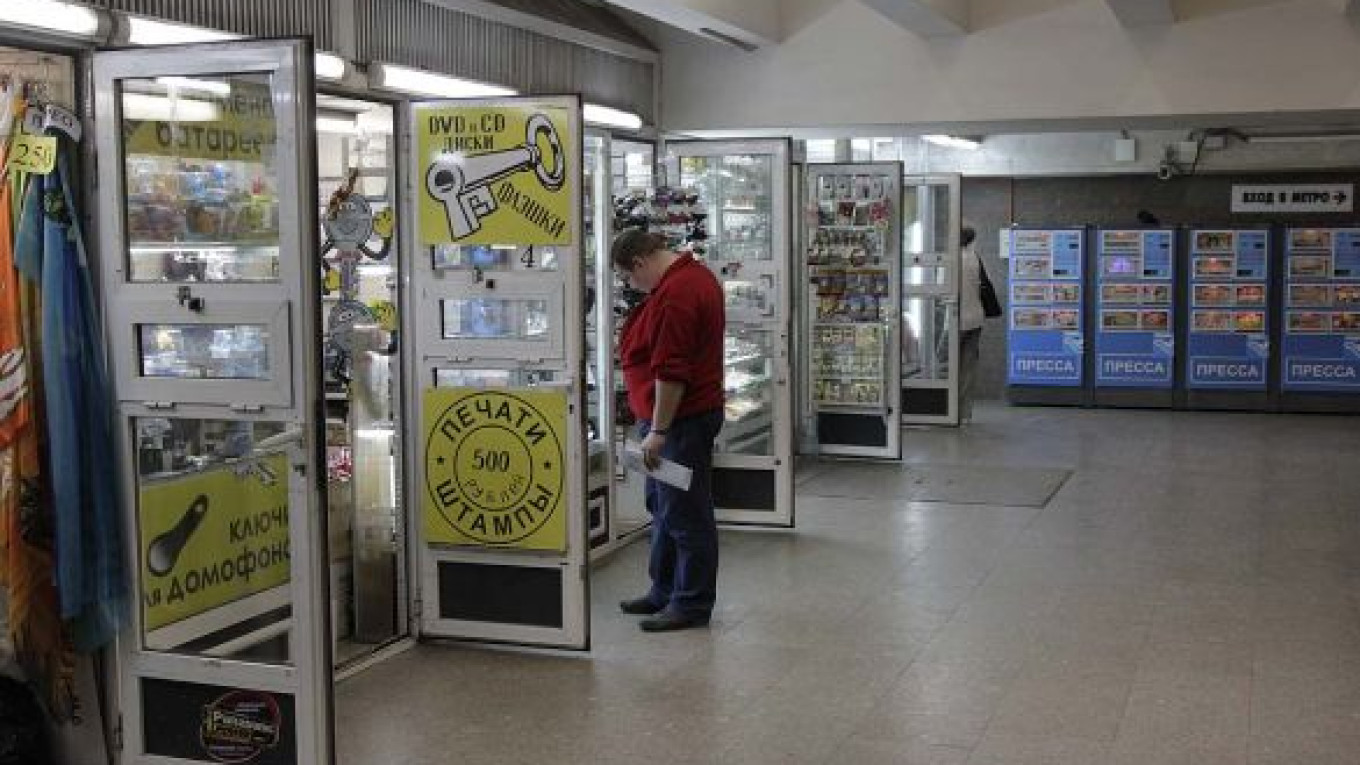More then 40 percent of Russian businessmen have moved into the shadows since the government increased social taxes in 2011, business ombudsman Boris Titov said.
Titov, the government envoy for protecting the rights of small and medium-size businesses, said the introduction of a 34 percent social tax in 2011 forced many businessmen to move their companies to places like Kazakhstan.
In Kazakhstan, the social tax is 11 percent, Titov said during a news conference Wednesday, adding that the rate at the Skolkovo technology hub, outside Moscow, is 14 percent.
"Russia is losing its competitiveness, so businesses leaves for other jurisdictions," Titov said.? "The situation is really getting worse for small business."
Titov added that he receives many complaints from entrepreneurs who tell him that they will get out of business forever.
These sentiments were echoed by former tax official Alexander Pochinok, who told the Moscow Times on Wednesday that "the current system makes everyone look for ways to pay less."
The government decision to raise the social tax from 14 to 34 percent was seen as a huge blow, prompting protests by entrepreneurs in several cities, including Moscow.
Vladimir Putin, who was prime minister at the time of the increase, called the move a "forced measure" when responding to a question from a businesswoman, who said her business would seriously suffer because of the increase.
Putin said in December 2010 that the government was increasing the social burden on businesses to carry out pension reform and health care reform.
Pochinok said that instead of increasing the social tax, the government should create a system that would motivate businesses to pay for insurance and would provide advantages to firms that improve working conditions and reduce work-related health problems.
"Today, even if any employer makes working conditions ideal, he receives nothing in the end," Pochinok said.
Although Titov, a former head of business lobbying group Delovaya Rossia, wants to abolish taxes on small businesses, he has limited power to influence government decisions, analysts said.
Titov said earlier that he hopes he and his deputies will gain more leverage over officials who use bureaucratic obstacles to put pressure on business.
A bill to be presented in the State Duma for a second reading in February will allow the business ombudsman to overrule officials' decisions that are not in line with legal practices.
This will address rulings by tax authorities and fire and sanitary experts, who often use their power to demand bribes.
A senior official at one ministry, who wished to remain anonymous, said? ? a 5 percent kickback is often added to the cost of various business services provided by regional officials.
"The only solution for it is to personally control the situation and [compel] transparency," he said.
Contact the author at [email protected]
Related articles:
A Message from The Moscow Times:
Dear readers,
We are facing unprecedented challenges. Russia's Prosecutor General's Office has designated The Moscow Times as an "undesirable" organization, criminalizing our work and putting our staff at risk of prosecution. This follows our earlier unjust labeling as a "foreign agent."
These actions are direct attempts to silence independent journalism in Russia. The authorities claim our work "discredits the decisions of the Russian leadership." We see things differently: we strive to provide accurate, unbiased reporting on Russia.
We, the journalists of The Moscow Times, refuse to be silenced. But to continue our work, we need your help.
Your support, no matter how small, makes a world of difference. If you can, please support us monthly starting from just $2. It's quick to set up, and every contribution makes a significant impact.
By supporting The Moscow Times, you're defending open, independent journalism in the face of repression. Thank you for standing with us.
Remind me later.


